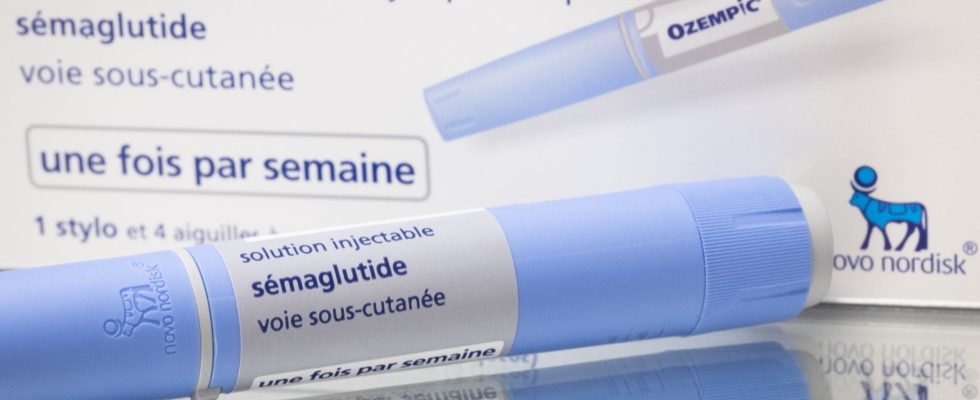She fears possible serious adverse effects. Faced with the increasing prescriptions of diabetes treatments that also act against obesity, and faced with the associated risks, the drug agency will increase its “vigilance”, it announced on Friday, July 5.
This family of treatments, to which Ozempic belongs, mimics a hormone secreted by the intestines (GLP-1) which acts on the pancreas to promote the secretion of insulin and sends a signal of satiety to the brain after the ingestion of food.
Injectable pen medications
Indicated for insufficiently controlled type 2 diabetes or to control weight in cases of obesity, these drugs in injectable pens are sometimes diverted to lose weight for aesthetic purposes.
“Around 700,000 people in France are taking this type of treatment, we will very quickly reach a million, and the use of these molecules will increase further in the years to come,” Dr. Isabelle Yoldjian, medical director at the ANSM, told AFP. “This high use may reveal more widely risks that were previously very rare or show that known risks are more serious than expected.”
Until now, the ANSM has “recorded few cases of serious adverse effects […]probably due to significant supply tensions which have forced us to restrict use,” she said in a statement.
But “when these tensions end, more patients will be able to access treatments, which could lead to a sharp increase in cases of serious adverse effects,” she added.
Pharmacoepidemiological studies
To find out more, the Epi-Phare group – which brings together the ANSM and Health Insurance -, in collaboration with a center in Bordeaux, has launched pharmaco-epidemiological studies. “The work will develop over three years and, if it leads to discoveries of risks in the meantime, it will allow us to act quickly,” explained Dr. Yoldjian.
The aim is to estimate the frequency of risks associated with anesthesia for patients taking these treatments, to study a possible increased risk of suicidal thoughts or to monitor little-known or very rare long-term adverse effects, such as the risk of thyroid or gastrointestinal cancers.
The ANSM also reiterated its warnings about injection pens “obtained outside the legal and secure circuit”, in the wake of alerts from the European Medicines Agency and the WHO about pens falsely labeled as Ozempic.
Ozempic has been very popular on social media for its slimming properties, which has led to stock shortages in some countries, such as Australia.
In France, according to Health Insurance estimates, 1.5% of patients taking them are considered to be misusing them. A proportion that is probably underestimated because it only takes into account drugs dispensed in pharmacies and reimbursed.
